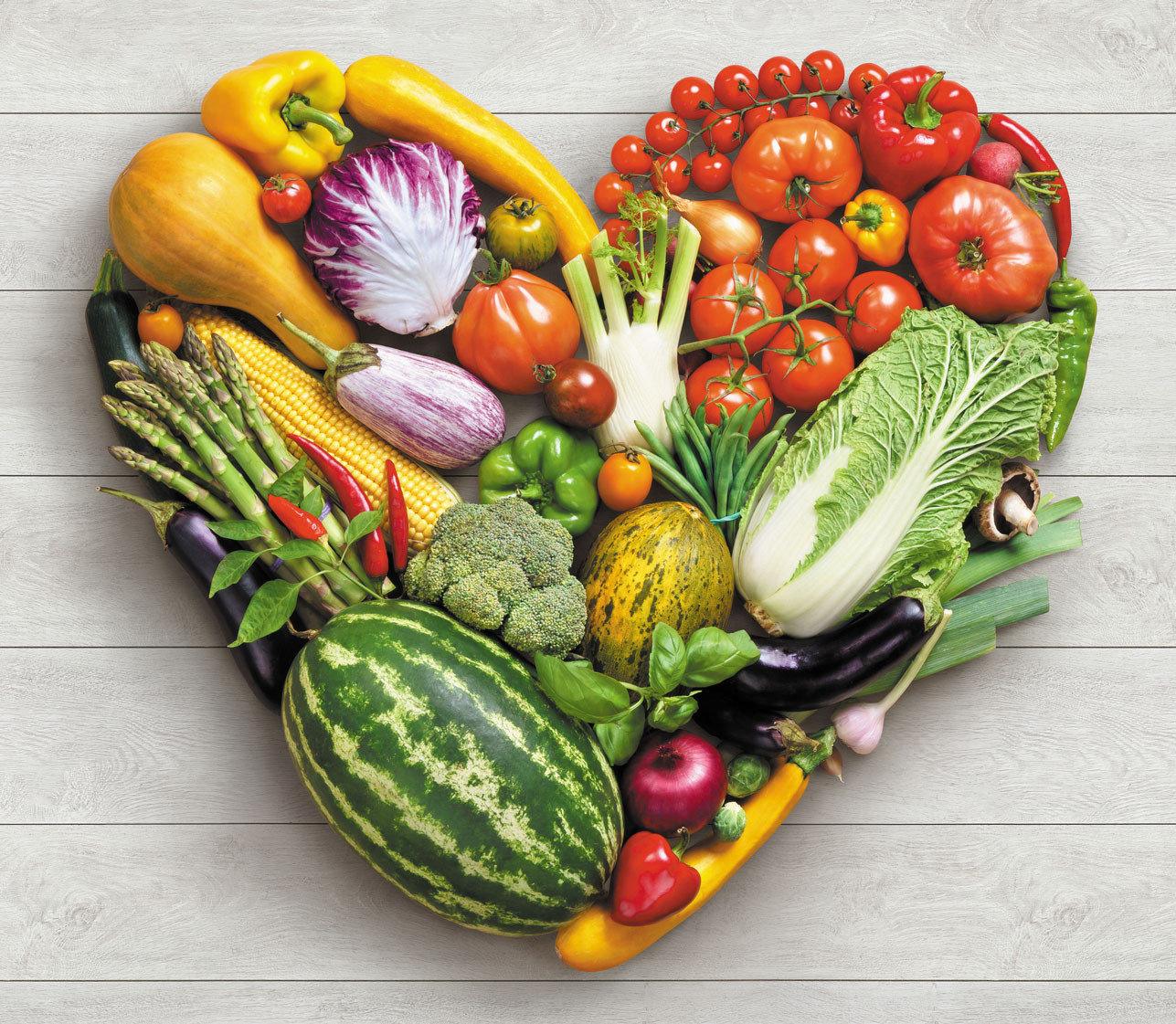The Ultimate Sugar Free Sauces Taste Test: Which One Wins?
The Ultimate Sugar Free Sauces Taste Test: Which One Wins?
Blog Article
All About Healthy Food: Benefits of Taking On Plant Based Options
The discussion surrounding plant-based diet plans has acquired substantial interest recently. Many individuals are discovering the prospective wellness benefits, dietary benefits, and environmental effects related to these nutritional choices. As people become a lot more knowledgeable about their food's influence on well-being and sustainability, concerns occur concerning the usefulness of embracing such a way of living. What particular adjustments can one expect, and just how might these options reshape not only individual wellness but likewise the planet's future?
Understanding Plant-Based Diet Regimens
Although many individuals link plant-based diets primarily with vegetarianism or veganism, these diet regimens can incorporate a wide range of consuming patterns that focus on entire, minimally processed plant foods. Such diet regimens commonly consist of fruits, vegetables, entire grains, nuts, seeds, and legumes, while eliminating or limiting animal items. This flexibility permits people to tailor their nutritional choices according to nutritional demands and personal preferences. Some might embrace a primarily plant-based diet plan while still occasionally consuming meat or dairy, usually referred to as a flexitarian approach. The focus remains on incorporating more plant foods, which can bring about a varied array of tastes and meals. Recognizing these numerous analyses of plant-based eating is necessary for appreciating its availability and allure in contemporary food society.
Wellness Conveniences of Plant-Based Foods
The wellness benefits of plant-based foods are significant, offering a nutrient density advantage that supports total well-being. Research shows that these foods can boost heart health and play a vital function in efficient weight monitoring. By including extra plant-based options, individuals might boost their dietary selections and advertise long-term wellness.
Nutrient Density Advantage
Nutrient thickness plays a vital role in the health advantages of plant-based foods, making them an engaging option for those looking for a balanced diet regimen. Plant-based foods, such as fruits, veggies, legumes, nuts, and entire grains, are commonly rich in necessary vitamins, minerals, and antioxidants while being lower in calories. This high nutrient thickness enables individuals to consume fewer calories while still satisfying their nutritional needs. In addition, these foods are loaded with nutritional fiber, promoting digestive health and wellness and helping in weight management. By incorporating nutrient-dense plant-based options, consumers can enhance their overall health, support their body immune systems, and reduce the danger of chronic conditions. Inevitably, the nutrient thickness of plant-based foods emphasizes their importance in a health-conscious lifestyle.
Heart Wellness Renovation

Weight Administration Assistance
Along with promoting heart health and wellness, a plant-based diet plan can significantly aid in weight management. This dietary technique stresses whole foods such as fruits, vegetables, beans, nuts, and entire grains, which are normally reduced in calories and higher in fiber compared to animal-based products. The high fiber content assists raise satiation, decreasing total calorie intake. Plant-based diet regimens are often abundant in necessary nutrients while reduced in undesirable fats, making it easier to keep a healthy weight. Research suggests that individuals who embrace a plant-based way of living tend to have reduced body mass indexes (BMIs) and experience more effective weight management contrasted to those that eat meat-heavy diet regimens. As a result, click to read more accepting plant-based alternatives is a tactical option for effective weight administration
Nutritional Worth of Plant-Based Components
Plant-based active ingredients are abundant in vital nutrients, supplying a diverse range of vitamins, minerals, and antioxidants that add to total health and wellness. A comparison of healthy protein sources exposes that while pet products are typically deemed premium, many plant-based options offer sufficient healthy protein and various other advantageous substances. Comprehending the dietary worth of these ingredients can aid people make informed dietary choices.
Important Nutrients in Plants
Nutrient-rich active ingredients located in plants provide a diverse selection of crucial vitamins and minerals that add substantially to general health and wellness. These components are abundant in vitamins A, C, and K, which sustain immune function, vision, and blood clot, respectively. Additionally, plants supply essential minerals such as potassium, calcium, and magnesium, essential for heart health and wellness, muscle mass function, and bone stamina. The visibility of fiber in plant-based foods aids food digestion and promotes a healthy digestive tract microbiome. Anti-oxidants, located perfectly in veggies and fruits, assistance fight oxidative tension and reduce swelling. Numerous plant foods are low in calories yet high in nutrients, making them a superb selection for those seeking to maintain a healthy and balanced weight while guaranteeing excellent nutrient consumption.

Comparing Healthy Protein Resources
Healthy protein resources vary substantially in their nutritional accounts, with plant-based active ingredients providing special advantages. Unlike pet proteins, which typically include hydrogenated fats and cholesterol, plant proteins often tend to be lower in these undesirable components. Legumes, nuts, seeds, and entire grains are abundant in crucial amino acids, fiber, vitamins, and minerals. As an example, lentils offer high healthy protein web content along with substantial iron and folate, while quinoa is a total healthy protein, using all nine necessary amino acids. Additionally, plant-based proteins are typically accompanied by anti-oxidants and phytochemicals that sustain general health and wellness. The shift to plant-based protein sources not only enhances dietary intake but likewise lines up with sustainable nutritional practices, reducing environmental influence and promoting long-term health advantages.
Ecological Influence of Plant-Based Eating
As recognition of climate modification expands, numerous individuals are exploring lasting dietary choices that can greatly minimize their ecological footprint. Plant-based eating has emerged as a Extra resources substantial factor to decreasing greenhouse gas emissions, which are mainly connected with animals production. The farming of fruits, grains, vegetables, and vegetables commonly needs less resources, such as water and land, contrasted to animal farming. Additionally, plant-based diet plans can lead to lowered deforestation, as much less land is needed for grazing animals or growing animal feed. By changing towards plant-based alternatives, customers can support biodiversity and promote healthier environments. On the whole, accepting plant-based eating not just benefits individual health but also represents a crucial action towards ecological sustainability and conservation initiatives.
Overcoming Common Misconceptions
While numerous people identify the benefits of a plant-based diet regimen, a number of misunderstandings typically discourage them from totally embracing this way of life. An usual idea is that plant-based diet regimens lack sufficient healthy protein; however, many plant resources, such as beans, nuts, and tofu, offer sufficient protein. Additionally, some think that this diet plan is expensive, when in fact, staples like beans, rice, and seasonal veggies can be rather budget-friendly. An additional false impression is that plant-based consuming is extremely restrictive, whereas it in fact supplies a varied range of foods and tastes. Lastly, many stress that a plant-based diet plan might bring about shortages, yet with correct planning, individuals can get all required nutrients, including minerals and vitamins, while taking pleasure in a wide range of tasty dishes.
Tips for Transitioning to a Plant-Based Lifestyle
Making the change to a plant-based way of life can be an enriching experience, though it usually needs some guidance to navigate the preliminary changes. People are motivated to begin progressively, incorporating more fruits, veggies, vegetables, and entire grains right into their dishes while minimizing meat and dairy products intake. Meal preparation is necessary; preparing a weekly menu can help reduce the modification and prevent final unhealthy selections. Exploring cooking approaches and brand-new dishes can also preserve and improve the experience exhilaration about plant-based consuming. In addition, joining support groups or areas can provide motivation and share valuable ideas. Remaining notified about nourishment warranties balanced meals, stopping shortages while promoting a healthy, gratifying plant-based lifestyle.

Delicious Plant-Based Dish Concepts
Discovering delicious plant-based meal ideas can influence people to embrace a more healthy diet regimen. One popular option is a passionate quinoa salad, including cherry tomatoes, cucumber, and a spicy lemon-tahini clothing. One more fave is a full-flavored lentil stew, packed with carrots, celery, and fragrant herbs, ideal for a calming dinner. For breakfast, overnight oats made with almond milk, chia seeds, and covered with fresh berries offer a nutritious beginning to the day. Additionally, a dynamic veggie stir-fry with tofu and a range of vivid veggies can be a quick yet pleasing dish. Luscious avocado toast on whole-grain bread, sprayed with seasonings and seeds, supplies an easy yet savory snack. These meals showcase the variety and splendor of plant-based eating.

Often Asked Concerns
Can a Plant-Based Diet Regimen Give Sufficient Healthy Protein?
The question of whether a plant-based diet plan can provide enough healthy protein prevails. Countless resources, consisting of beans, nuts, seeds, and entire grains, can satisfy healthy protein needs effectively, sustaining a well balanced and nourishing diet for individuals.
Are Plant-Based Diet Plans Suitable for Kid?
The suitability of plant-based diet regimens for children relies on cautious planning. Appropriate nutrients need to be ensured, consisting of minerals, healthy proteins, and vitamins. With proper advice, such diets can support healthy and balanced development and growth in youngsters.
Just how Do I Eat Out on a Plant-Based Diet plan?
Eating out on a plant-based diet regimen involves seeking dining establishments with diverse menus, asking for adjustments, and checking out vegan-friendly choices. Planning in advance and connecting dietary preferences can enhance the eating experience while keeping nutritional choices.
What Prevail Irritants in Plant-Based Foods?
Typical irritants in plant-based foods consist of soy, gluten, nuts, and seeds - Sugar Free Sauces. People complying with a plant-based diet regimen ought to be mindful of these allergens and review labels thoroughly to stay clear of damaging reactions and assure safe intake
Can Plant-Based Diets Aid With Weight Reduction?
Research study indicates that adopting a plant-based diet might promote weight-loss as a result of its typically reduced calorie density and greater fiber material. This combination can enhance satiation, aiding people handle their calorie intake effectively. Lots of people associate plant-based diets generally with vegetarianism or veganism, these diet regimens can encompass view website a vast range of consuming patterns that prioritize entire, minimally processed plant foods. Nutrient density plays an important role in the wellness advantages of plant-based foods, making them an engaging choice for those seeking a balanced diet. Plant-based diet regimens have been revealed to significantly enhance heart health, as they commonly contain elements that sustain cardiovascular function. In enhancement to advertising heart health and wellness, a plant-based diet plan can substantially aid in weight administration. A typical belief is that plant-based diet plans lack enough protein; nevertheless, many plant resources, such as legumes, nuts, and tofu, give enough healthy protein.
Report this page